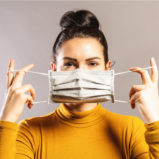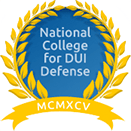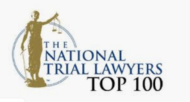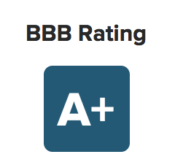
New Jersey Gov. Phil Murphy recently issued an executive order requiring individuals to wear face masks to curb the spread of the COVID-19 coronavirus. But the order includes several exceptions that may allow certain individuals not to wear a mask.
New Jersey residents who are upset by the sight of others who are not wearing masks should not overreact or react too quickly. A confrontation that leads to heated exchanges with someone who is not wearing a mask may hasten the spread of COVID-19 aerosols.
For those who suggest that one could make a citizen’s arrest of someone violating the governor’s mask order, let us, as very experienced NJ criminal defense attorneys, counsel that technically you could, but you should not. The whole premise of approaching an unmasked individual poses an unnecessary risk.
New Jersey’s COVID-19 Mask Law and Its Exceptions
Gov. Murphy’s July 8 mask mandate, officially Executive Order No. 163, requires individuals to wear face coverings in outdoor public spaces when it is not practicable to keep a six-foot distance from others.
The order also reiterates New Jersey’s policy of requiring face coverings in indoor public spaces, such as retail, recreational, and entertainment businesses, public areas of government buildings, and mass transit trains, buses, and stations.
However, the mask requirement does not apply to:
- Caretakers and their charges
- Children younger than 2 years old
- People eating or drinking at outdoor dining areas
- People whose health would be inhibited by the mask
- Individuals in other situations where they cannot feasibly wear a face covering
- Immediate family members
- Household members.
The indoor-space mask order exempts people who have health reasons and children under age 2.
A news release accompanying the governor’s order explains that wearing a face-covering could inhibit health “when an individual is engaging in high intensity aerobic or anaerobic activities, when in the water and in other situations where the presence of a mask would pose a risk to the individual’s safety.”
At the risk of stating the obvious, you have no way of knowing upon seeing someone whether they have health issues that preclude wearing a face mask. Also, you have no way of knowing whether several people without masks share a household and are thus exempt from the mask order while together.
Making a Citizen’s Arrest Under New Jersey Law
It’s archaic and pretty much unused, but a New Jersey law (Section 2A:169-3) says in addition to police, any other person may apprehend without warrant or process any disorderly person. This is New Jersey’s version of a “citizen’s arrest” statute, which many states have in some form. The concept dates to Medieval times and was adopted in the U.S. at its founding, when times were different, to say the least.
Such laws remain on the books essentially to justify instances like a shop owner holding a suspected shoplifter for police or a citizen stopping someone who is fleeing police or stepping in to stop an assault.
Approaching someone on a New Jersey city street or a group in a park to inform them that they are violating the law by not wearing a mask and attempting a citizen’s arrest poses risk and should not be attempted. It could expose the individual attempting the arrest to the risk of infection from COVID-19. The encounter could escalate into a dangerous situation with the possibility of a physical altercation.
Can You be Arrested for Not Wearing a Mask?
Technically, violating the governor’s mask order is a disorderly person’s violation, which could result in a $1,000 fine, up to six months in jail, or both. But the order doesn’t even spell out whether police are to issue tickets or arrest alleged violators.
“I don’t know how you enforce this,” Brian Higgins, a former chief of the Bergen County (N.J.) Police who now teach at the John Jay College of Criminal Justice in New York City told NBC News a day after Gov. Murphy issued his mask mandate.
The NBC report says that during an interview on MSNBC’s “Morning Joe,” “Murphy was equally vague about the enforcement, saying ‘you’re gonna at least get a warning, if not something stronger.’” Murphy’s office later told NBC that “local law enforcement will monitor compliance, particularly in crowded situations.”
“I am part of the chiefs association,” Higgins said, “and when I touch base with them, what I hear is ‘I don’t want my cops involved in this, I don’t want my cops enforcing social distancing and masks.’ They’ve got other things to worry about.”
If the governor’s office and New Jersey police want to take a step back from arresting people for violating mandatory mask rules, you probably should, too.











